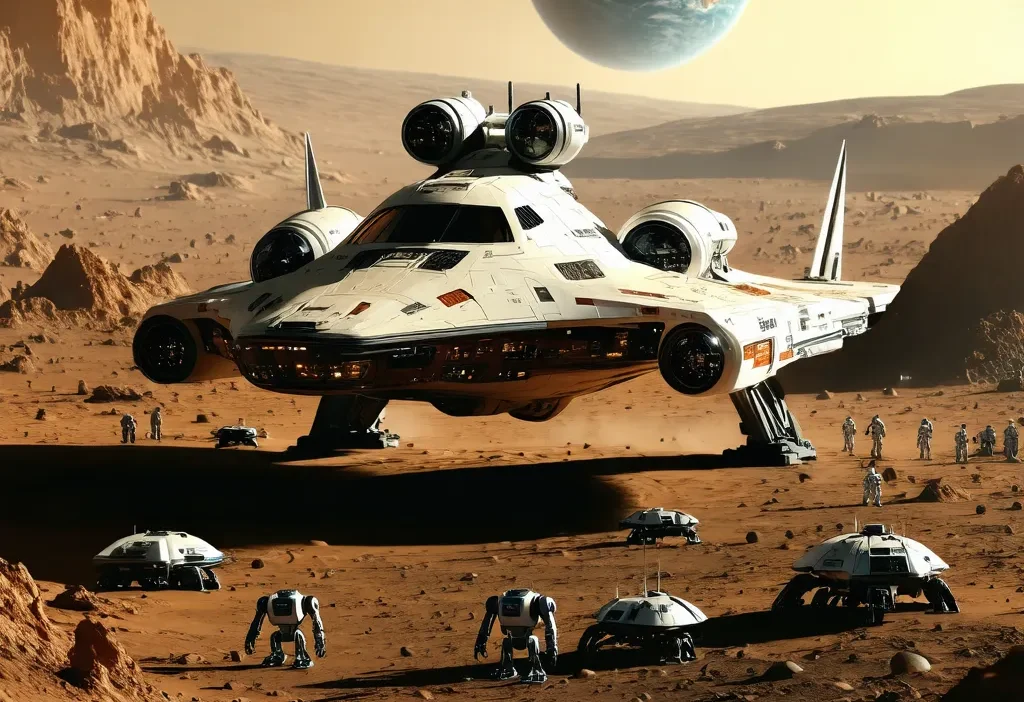The Future of Space Exploration: What 2025 Holds
As we stand on the brink of a new era, space exploration in 2025 is poised to redefine humanity’s relationship with the cosmos. The race to colonize Mars, advancements in reusable rockets, and breakthroughs in asteroid mining are just the tip of the iceberg. This blog delves into the exciting possibilities and challenges that await us in the final frontier.
Breaking Barriers: Key Technologies Shaping Space Exploration
The next leap in space exploration hinges on cutting-edge technologies. Reusable rockets, like those developed by SpaceX, are revolutionizing space travel by making it more affordable and sustainable. According to NASA, these innovations could reduce the cost of space missions by up to 90%, paving the way for more frequent and ambitious ventures.
- Reusable Rockets: Enables multiple uses, cutting costs and waste.
- Mars Colonization: Plans are underway to establish human settlements on Mars by the late 2030s.
- Asteroid Mining: Potential for extracting valuable resources like water and metals from asteroids.
“The next decade will witness unprecedented advancements in space technology, setting the stage for human exploration beyond low Earth orbit.” – NASA
International Collaboration: The New Frontier
Space exploration is no longer a solitary endeavor. Countries like the USA, China, and Russia are collaborating with agencies such as ESA to pool resources and expertise. This global partnership is crucial for tackling complex challenges, from deep space communication to life support systems in hostile environments.
The benefits of international collaboration extend beyond technological advancements. By sharing knowledge and responsibilities, nations can mitigate risks and accelerate progress toward shared goals like establishing a lunar gateway or exploring Europa’s subsurface ocean.
Space Tourism: The Next Adventure
While space exploration drives scientific discovery, it also opens doors to commercial opportunities. Space tourism is on the verge of becoming mainstream, with companies like Virgin Galactic and Blue Origin offering suborbital flights to paying customers. In 2025, we might see the first luxury space resorts orbiting Earth or even on the Moon’s surface.
This democratization of space travel isn’t just about adventure; it fosters public interest and investment in space-related technologies. As more people experience the cosmos firsthand, the demand for innovative solutions to logistical challenges will grow, further propelling space exploration forward.
Scientific Breakthroughs: Unlocking Cosmic Secrets
The quest for knowledge remains a cornerstone of space exploration. In 2025, missions like JWST (James Webb Space Telescope) will provide unprecedented insights into the early universe, while rovers on Mars continue to search for signs of past or present life. These discoveries not only expand our understanding of the cosmos but also inspire future generations of scientists and engineers.
On the horizon are plans for human missions to Venus and beyond. The study of Venus’s atmosphere could provide critical insights into climate change, offering lessons applicable to Earth’s environmental challenges.
Challenges Ahead: Navigating the Unknown
Despite the excitement, space exploration in 2025 faces significant hurdles. Radiation exposure remains a major concern for long-duration missions, requiring advanced shielding technologies. Additionally, the ethical implications of human colonization and resource extraction in space demand careful consideration to ensure sustainable and equitable use of cosmic resources.
The psychological impact on astronauts during prolonged missions is another area needing attention. Studies by NASA highlight the importance of mental health support systems for crew members in isolated environments.
Conclusion: A New Dawn for Humanity
The future of space exploration in 2025 is brimming with potential. From technological marvels to international collaborations, we stand at the threshold of a new era where humanity’s presence in space becomes more than just a vision—it becomes reality. As we venture further into the cosmos, let us remember that every step forward is not only about exploration but also about preserving and celebrating life on Earth.
The stars have always been our guiding light; it’s time to reach for them with renewed vigor and purpose.





